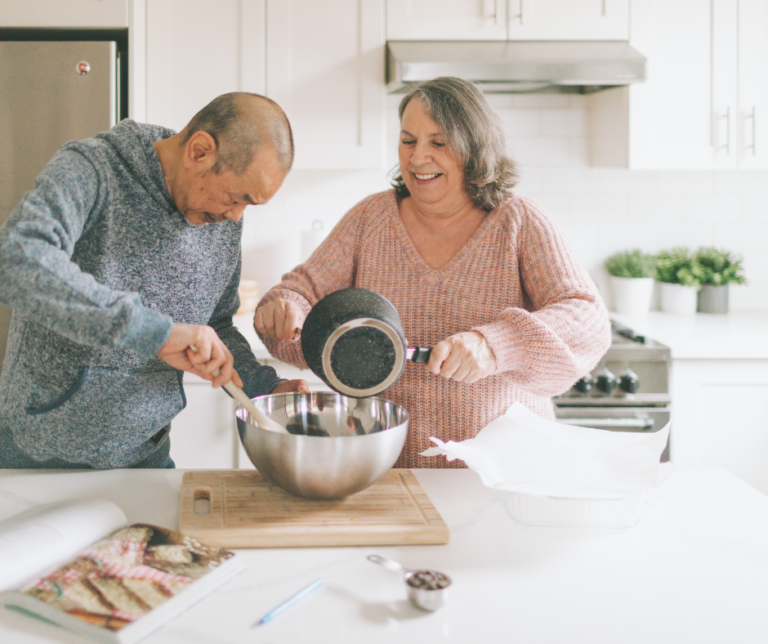Kitchen Safety Guide for Dementia Care

Kitchen safety
Kitchen safety is important in dementia care, as those living with dementia may face challenges navigating their environment safely. From forgetting to turn off appliances to confusion about proper food storage and handling, the kitchen can pose a safety concern. In this guide, we will explore practical strategies to promote kitchen safety and enhance independence for those living with dementia.
Organize the Kitchen
- Declutter and remove items that are not needed to reduce distraction and confusion
- Organize cabinets and drawers and include only frequently used items for easy access
- Keep countertops clear of clutter
- Label drawers and cabinets with pictures or easy to read print so it’s easier to find items
- Do not place items in hard to reach cabinets to reduce fall risks
- Remove sharp objects and hazardous liquids such as cleaning products
Stove and Microwave Safety
- Set an easy to use timer when cooking
- Consider automatic stove shut-off devices to prevent fires
- Consider using stove knob covers if the person should not be using the stove
- Cover the number options on the microwave to limit choices (i.e. leave the one-minute button uncovered) to reduce overcooking and potential burns
- Provide supervision so metal objects are not put in the microwave or plastic is not put in the oven
- Consider cookware that is both microwave and oven safe
- Ensure smoke detectors are installed and working
- Maintain an up to date fire extinguisher
Food Safety
- Use pre-packaged, healthy meals
- Utilize Meals on Wheels when available
- Provide assistance in prepping meals in advance for easy use at mealtimes
- Avoid storing raw meat and fish, or lock these items up if there is a concern for eating uncooked food
- Monitor food items for expiration dates on a weekly basis
- Ensure the refrigerator and freezer are operating at the correct temperature
By implementing this kitchen safety guide for dementia care, you can create a supportive and safe kitchen environment for people living with dementia. Simple modifications can promote independence, confidence, and overall well-being. These adaptations should change as the person’s abilities change. Wellness Strategies Group is dedicated to providing expertly, tailored dementia care strategies. Contact us today for your free consultation.
